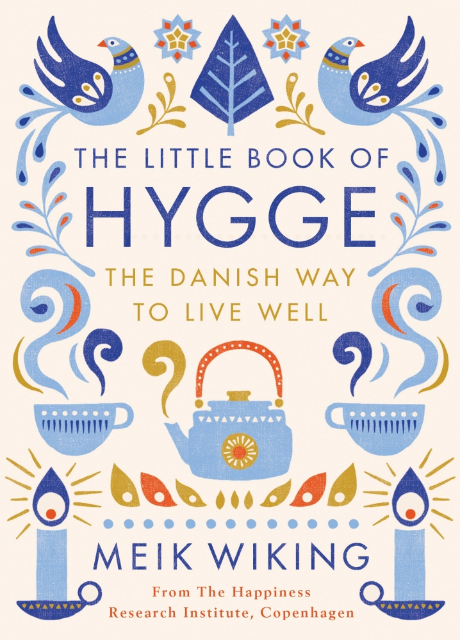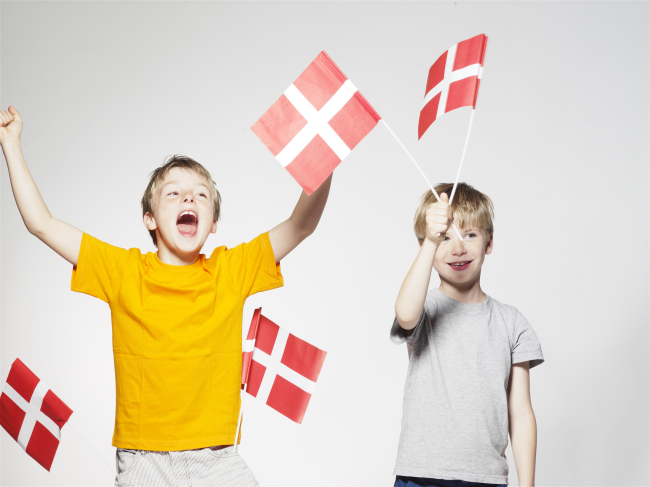In Denmark, people pursue happiness in everyday activities that land the Scandinavian society at the top of international happiness rankings year after year.
Whether chumming around the fireplace, reading by the candlelight or cooking for loved ones, Danes have mastered the art of “hygge”: the pursuit of well-being through down-to-earth endeavors, which reportedly contributes to overall health and wealth.
While the Nordic nation has championed its societal peace of mind, Korea has struggled, ranking 58th among other countries in the United Nations’ World Happiness Report this year. This is despite being the world’s 11th largest economy and 13th wealthiest in purchasing power.
Deploring the engulfing gap between dream and reality, some Koreans have dubbed the country “Hell Joseon,” referring to the backward, undemocratic feudal kingdom that existed before the republic.


“Many of our choices impact our happiness,” Meik Wiking, chief executive officer of the Happiness Research Institute in Copenhagen, told The Korea Herald last week. “Factors include how we spend our time and money, whom we interact with and look up to, what we expect in life and what kind of society, culture and environment we live in.”
More macroscale measures such as national policy, social security and city infrastructure also exert considerable influence, he added.
Weiking came to Korea to preach the secret to his country’s emotional prosperity. He authored the recently published book “The Little Book of Hygge: The Danish Way to Live Well,” which has a Korean edition available.
“Trust is the foundation for good partnerships,” the CEO argued, noting that the high level of trust across the Scandinavian social strata strengthens and stimulates public-private partnerships.
Trust also levels out organizational hierarchy, as managers put faith in their employees and entrust them with autonomy and flexibility, which later translate into higher productivity and creativity, according to the happiness guru.


The “flexicurity” model in Denmark enables companies to hire and fire flexibly during recession, Weik explained, adding that the tight-knit social safety net enables people to replenish and retrain for a new job.
Another feature of Denmark’s good governance is decentralized and devolved state power. Local institutions decide matters for themselves, with citizens actively participating in community affairs.
“Community life is flourishing in Denmark,” the Dane said, noting there are more than 100,000 community organizations in the country of 5.5 million people. “A vast part of our public budget is decided locally, which brings attention and resources to community issues.”
Most Danes -- across income, gender and age -- commute by bicycle, including politicians and company executives. A clean urban and natural environment allows citizens to accrue lifelong mileages in physical and psychological well-being, he said.
Regarding education, Weik contended that Danish schools encourage students to be “less concerned about how much money they will make in their life” and more passionate about doing what they truly want in life.
Acknowledging that Denmark has become susceptible to nationalism much like the rest of Europe, with support for right-wing nationalist parties and politicians boisterously on the rise, he warned that this trend could potentially harm the overall happiness of societies both at home and abroad.
Advising Korea, Weik said it is important to undertake a “deep analysis” of the mismatch between the country’s proprietary and spiritual wealth, and devise a long-term strategy around bridging the gap.
By Joel Lee (joel@heraldcorp.com)

-
Articles by Korea Herald





![[Herald Interview] 'Amid aging population, Korea to invite more young professionals from overseas'](http://res.heraldm.com/phpwas/restmb_idxmake.php?idx=644&simg=/content/image/2024/04/24/20240424050844_0.jpg&u=20240424200058)












![[KH Explains] Korean shipbuilding stocks rally: Real growth or bubble?](http://res.heraldm.com/phpwas/restmb_idxmake.php?idx=652&simg=/content/image/2024/04/25/20240425050656_0.jpg&u=)

